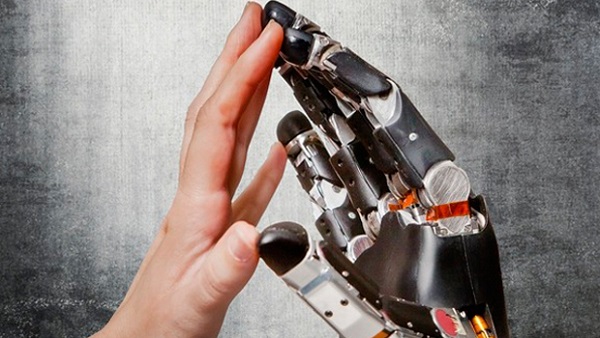Using a prosthetic limb and some brain stimulation, scientists have granted a monkey an artificial sense of touch, marking a breakthrough in the industry.
Modern science is truly remarkable. Centuries and even as recently as decades ago, if you lost a limb, such as a leg, an arm or a hand, you were destined to a life of wheelchairs and walking sticks and a support system of people just doing things for you as you were unable to do them for yourself. But nowadays, thanks to revolutions and massive improvements in science technology, those missing limbs can have prosthetics as replacements, giving wearers to chance to ‘regain’ the limb that they lost. Now, it seems that prosthetic wearers may even be given the sense of touch through their limbs, as scientists have successfully created the sense for a prosthetic limb wearing monkey.
This huge breakthrough in the prosthetic limb industry comes after scientists at the University of Chicago successfully concluded an experiment on a primate. How this experiment was carried out is that the researchers attached electrodes to the monkey in the regions of its brain that control its sense of touch. Then, in order to get accurate results, the researchers studied how the monkey responded to different types of touch in order to figure out how much electrical charge would be required in order to elicit the right response. Next, the monkey underwent several exercises with its own hand and an unstimulated brain before undergoing the same exercises albeit this time equipped with a prosthetic hand that had pressure sensors on it, which created electrical signals which then resulted in electrodes being sent to the monkey’s brain. The monkey, the researchers say, responded the same in both situations.
What this means is that the monkey registered no difference in feeling things with its real hand or the artificial hand that was provided, suggesting that should this be carried out with humans, they too could have the chance of having their real sense of touch replaced with that of an artificial sense, should they require a prosthetic limb. While it could work on humans, the scientists say that the system would have to become more complicated, but a future of better prosthetic limbs is not far off.
Source: gigaom
Read more on walyou, Lightning Powers Phone in Attempt to Recreate Frankenstein, Real Lightsaber Ditches the Force for Photons and Vacuum Chambers











